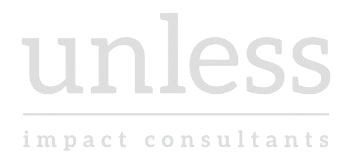Whenever I meet someone with a short name, I ask if it’s an acronym. Ed is never amused.
I don’t really do this, but I wonder why companies use so many acronyms, especially when the concepts they represent are so important like diversity, equity and inclusion.
Workplace discrimination became illegal with the passage of the Civil Rights Act of 1964. Employees and job applicants were protected against employment discrimination based on color, religion, sex and national original. One year prior, the Equal Pay Act guaranteed that men and women receive equal pay for equal work. So, with laws on the books, what purpose do these acronyms serve?
What Do These Acronyms Mean?
DEI is diversity, equity and inclusion. Diversity speaks to difference. The workplace is more interesting, representative and rich when there is a variety of age, race, gender, religion and sexual orientation. Equity addresses fairness of the systems and processes at work. Everyone gets access to the same opportunities; there is no privilege. Inclusion ensures that the office is safe, accessible, and welcoming – all the diverse people are included in decisions and activities.
DEIB adds belonging. Belonging reaches a much broader audience and can be felt by every employee. While DEI focuses on groups that have been traditionally disenfranchised, belonging includes them and anyone who feels like an outsider.
JEDI swaps belonging for justice. Justice means fairness, but so does equity, so there must be more to it. The legal definition sheds more light. Laws exist to prevent harm. When harm is alleged, justice demands that action is taken. In the workplace, this calls for employees and leadership to do something when they see or know something.
In researching this article, I came across more: A-JEDI (anti-racisim + JEDI) and IDARE (inclusion, diversity, anti-racism and equity). I stopped looking. There is also the“S” in ESG. ESG is environmental, social and governance. Social includes all social issues which arguably includes all of the other letters we’ve discussed thus far.
Do Acronyms Help?
I love that words like diversity, equity, inclusion, belonging and justice are now familiar terms in the workplace. The more we are exposed to these concepts, the less awkward or uncomfortable we become when there is an issue. Actually, there will be fewer issues!
However, I don’t appreciate the confusion around them, or the casual way they are introduced and used. Which acronym should a company embrace? Is one better than the other? Is there a standard? Who is judging? Who’s creating them? When will the next one arrive?
IDK. SMH.
Let’s Use An Old Phrase Instead
I propose a familiar phrase instead. It can also be turned into an acronym if you really need another one in your life. It is “do unto others” or DUO. This makes a lot of sense when you consider that a company is considered a person under the law.
Let’s see how it works. I don’t want to be passed over for a promotion because of my political views. I want to be considered for jobs despite my age. I don’t want to be excluded from projects or events because I have to be away from the office for a religious holiday. I just want to be judged on my performance, my ability to get along with others, and the value I bring to the company. As such, everyone deserves this treatment.
The existence of laws, acronyms and phrases, alone, will never remove discrimination from the workplace or create a more inclusive culture. In 2021, Black employees comprised 14% of the workforce, but only 7% were managers and 5% vice presidents. This is not very diverse or equitable. So, it is up to each of us who believe in these principles to promote them, support them, and advocate for them, even if they don’t directly and immediately benefit us as individuals.
We need to be proactive, intentional, compassionate, kind, logical and empathetic – PICKLE. Take that to your HR department, because everyone loves a good pickle!
Click here for a nice history of the laws and policies implemented to address discrimination in the workplace.






